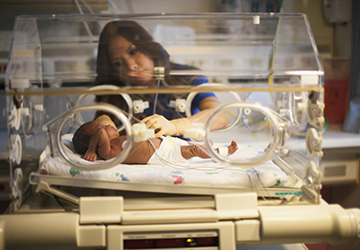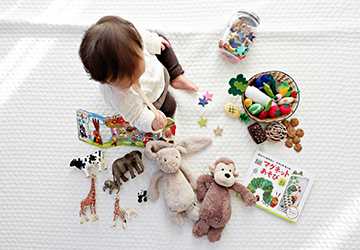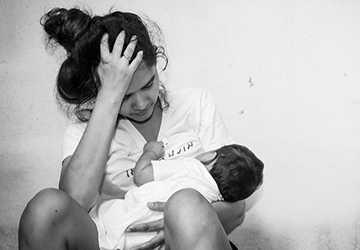Who Should I Call for Emergency Care for My Baby
Knowing who to call in an infant emergency can save your baby's life. From sudden fever to unforeseen injuries, having a reliable list of emergency contacts is essential for every parent. This article covers the basic steps and contact information for emergency infant care.

Recognizing an Infant Emergency
Recognizing the signs of an infant emergency is the first step in getting emergency care for a child. Here are some everyday situations where you may need emergency infant care:
- Fever over 38°C in a newborn under three months old.
- Dyspnea (trouble breathing) or cyanosis (bluish) of the skin.
- Severe allergic reactions such as angioedema (facial swelling) or dysphagia (difficulty swallowing).
- Severe bleeding or deep cuts.
- Seizures or syncope (loss of consciousness).
First Steps in an Emergency
If an infant emergency occurs, stay calm and follow these steps:
1. Assess the situation: Determine if the infant needs immediate medical attention.
2. Seek help: Based on the severity of the situation, decide who to call in an infant emergency. This could be 911, your paediatrician, or a nearby urgent care centre.
3. Provide basic first aid: If safe, provide basic first aid until help arrives. This may include stopping bleeding or soothing the baby.
These steps are essential to providing effective emergency care for your baby.
Important Contacts for Emergency Baby Care
A list of essential contacts can make all the difference in an emergency. Here's who to call in case of a baby emergency:
Paediatrician
Your paediatrician should be your first point of contact for most health issues. They can tell you if your baby needs to be checked out immediately or if treatment can be delayed. Make sure you have your baby's contact information handy.
Emergency Services (911)
If the situation is complicated, call 911 immediately. Emergency services provide emergency care for children and can tell you what to do until they arrive.
Poison Control
Contact a poison control centre if you suspect your baby has swallowed something harmful. It provides professional advice on poisonings and is essential to emergency care for your baby.
Emergency Centers Nearby
Urgent care centres are an excellent option for non-life-threatening emergencies. They can treat minor cuts, burns, or fevers in children.
Friends and Family
List family members or friends who can help in an emergency. They can help with older siblings, transportation, or emotional support.
Be Prepared for Emergencies
Being prepared is essential to manage an infant emergency effectively. Here are some tips:
- Emergency Kit: Prepare an emergency kit with bandages, disinfectant wipes, a thermometer, and any prescribed medications.
- First Aid Training: Consider taking a first aid and CPR class specifically for infants. This training is invaluable in providing emergency care for children.
- Emergency Numbers: Post a list of emergency numbers, including infant emergency services, near your phone or in an easily accessible location.
Being prepared will help you know who to call in the event of an infant emergency and allow you to act quickly.
Common Infant Emergencies and How to Manage Them
Fever
Fever can be worrisome, especially in young children. Any fever above 38°C requires immediate medical attention for newborns under three months old. Contact your paediatrician or go to the nearest emergency room for pediatric emergency care.
Disturbance Breathing
If your baby has difficulty breathing, a persistent cough, or blue skin, call 911 immediately. This is a critical situation that requires professional infant emergency care.
Allergic reactions
Severe allergic reactions may include angioedema, swelling of the lips or tongue, difficulty breathing, and hives. If you notice these symptoms, contact an emergency infant care centre immediately.
Injuries
Seek emergency medical help for deep cuts that cannot be stopped or that result from a fall from a height. Minor injuries can often be treated at home, but it is best to consult a professional.
Seizures
If your baby has a seizure, lay it on their side, remove complex objects from the area, and call 911. Do not try to hold him or put anything in their mouth. In this case, immediate emergency infant care is needed.
Importance of Prompt Response
How quickly you react can significantly impact the outcome of an infant emergency. Knowing who to call and acting quickly can reduce the danger and increase the chances of a favourable resolution.
Immediate Action Steps
1. Stay calm: Panic can cloud your judgment. Stay calm to make wise decisions.
2. Activate emergency protocols: Call 911 or let your paediatrician
know what you are doing.
3. Ensure Comfort: Make sure your baby is safe and comfortable while you wait for emergency services.
Advanced Emergency Preparedness
1. Emergency Drills: Attend emergency drills regularly to familiarize yourself with the process.
2. Prepare Medical Information: Keep your baby's medical records, including allergies and chronic conditions, so they are easily accessible to the emergency doctor.
3. Childproof: Ensure your home is childproof to avoid common accidents.
Specialized Emergency Services
Understanding the range of emergency infant services available will help you make a rational decision.
Neonatal Intensive Care Unit (NICU)
Neonatal Intensive Care Units (NICUs) are essential for critical care and are equipped with modern medical equipment and staff for newborns who require specialized care.

Pediatric Emergency Rooms
These units are designed specifically to meet the needs of children and young children and provide tailored emergency care for children in a child-friendly environment.
Telemedicine Options
Telemedicine can immediately connect you to a healthcare professional in less severe cases. This service can help you determine if a trip to the hospital is necessary or if home care is adequate.
Dealing with Non-Critical Emergencies
Not all emergencies require a trip to the emergency room. Dealing with non-critical situations is essential to effective emergency baby care services.
1. Minor scrapes and abrasions: Clean the wound and apply a bandage. Watch for signs of infection.
2. Fever treatment: Use fever-reducing medications, such as paracetamol (as your paediatrician recommends), and make sure your baby gets enough fluids.
3. Gastrointestinal disorders: Mild vomiting or diarrhoea can often be treated at home by taking in enough fluids and changing the diet.
The Role of Technology In Emergency Baby Care
Technology can be a lifesaver in baby emergencies. Various apps and devices can help provide emergency care for children.
Emergency Alert Apps
These apps can instantly notify emergency contacts and provide geolocation to ensure rapid emergency care for babies.
Health Monitoring Devices
Wearable devices can monitor vital signs and alert parents to potential problems, providing extra safety.
Conclusion
All parents must know who to call in an emergency with their baby. By being prepared and recognizing the signs of an emergency, you can ensure your baby gets the emergency care they need. Remember to keep important contacts handy and stay calm in an emergency. Your quick and informed response is essential to your baby's health and safety.







